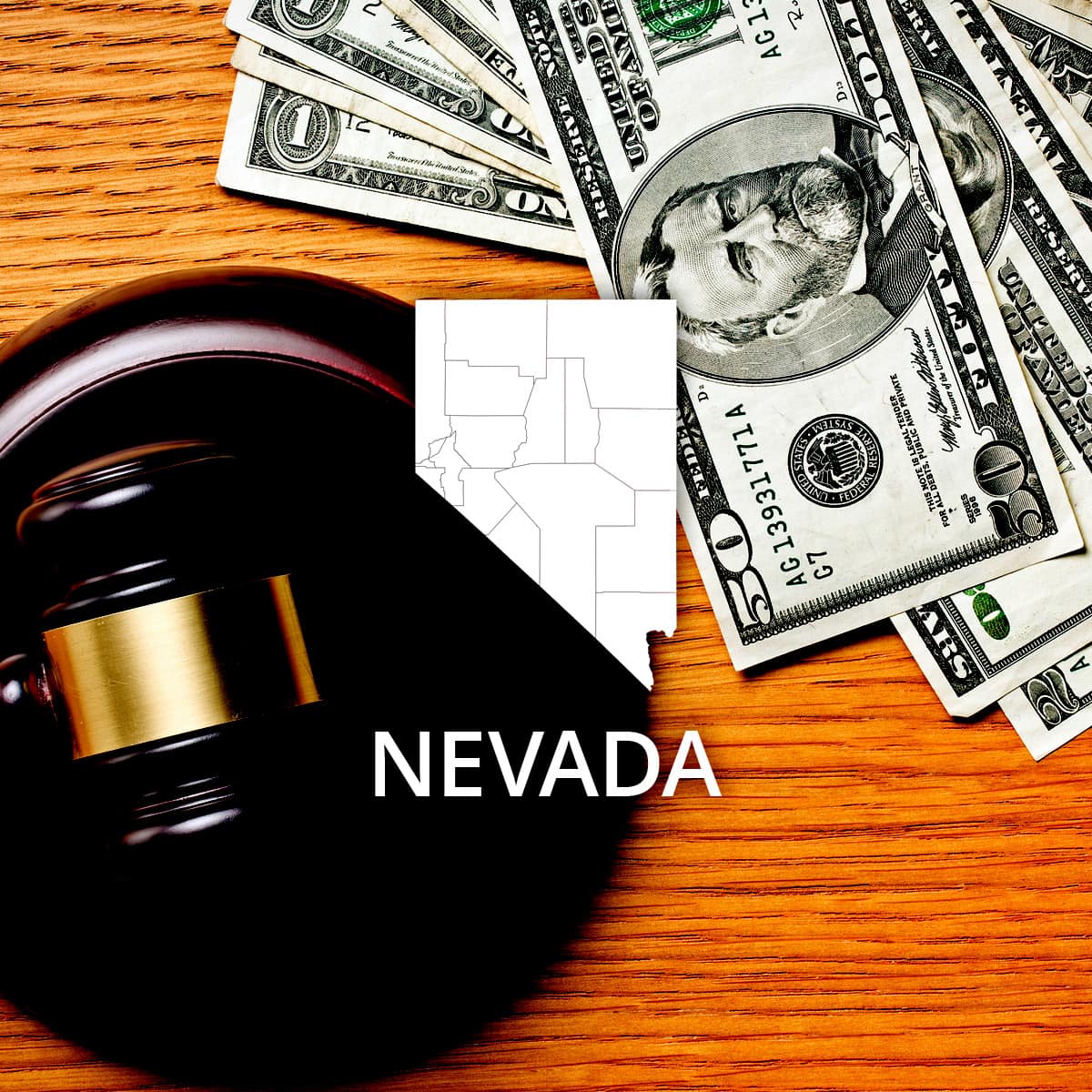 Multiple Bankruptcies: How Often You Can File One?
Multiple Bankruptcies: How Often You Can File One?
Table of Contents
 How to File Bankruptcy in Nevada
How to File Bankruptcy in Nevada
 All states must adhere to federal standards for bankruptcy according to the 2005 Bankruptcy Act. There are 4 District Bankruptcy Courts in Nevada in which a petitioner can file. The most commonly filed types of bankruptcy are Chapter 7, Chapter 11, Chapter 12 and Chapter 13.
All states must adhere to federal standards for bankruptcy according to the 2005 Bankruptcy Act. There are 4 District Bankruptcy Courts in Nevada in which a petitioner can file. The most commonly filed types of bankruptcy are Chapter 7, Chapter 11, Chapter 12 and Chapter 13.
 Nevada Bankruptcy: Chapter 7, Chapter 13 & Chapter 11
Nevada Bankruptcy: Chapter 7, Chapter 13 & Chapter 11
Nevada Chapter 7 Bankruptcy Filing Requirements
Chapter 7 is elimination bankruptcy, where the most unsecured debt can be taken off of the financial record of the petitioner. It is an attractive option for those with a high debt to low income ratio. The non-exempt assets may be used to pay off creditors, so some people opt for a different type of bankruptcy.
Nevada Chapter 13 Bankruptcy Information
Also known as restructuring debt, Chapter 13 bankruptcy allows petitioners to make a plan for repayment over a period of 3 to 5 years to pay off their creditors. In doing so, most people who file Chapter 13 are able to keep their homes and cars as long as they continue to make payments.
Nevada Chapter 11 Bankruptcy Filing Requirements
Chapter 11 bankruptcy is similar, but a code written for businesses to receive debt relief through structured repayment, but stay in operation in the meantime. The repayment period is also usually 3 to 5 years for Chapter 11. A specific code applies to family fishermen and farmers. Chapter 12 offers these family owned companies to repay debt while keeping their doors open and protecting them from foreclosure.
 How Much Does it Cost to File Bankruptcy in Nevada?
How Much Does it Cost to File Bankruptcy in Nevada?
The cost for filing Chapter 7 is $306, although it can be waived. Chapter 13 has a fee of $281 and cannot be waived, but paid in installments if necessary. Of course, the attorney fees for bankruptcy are the responsibility of the petitioner.
 Nevada Bankruptcy Forms
Nevada Bankruptcy Forms
Official bankruptcy forms for the U.S. Bankruptcy Courts are available at https://www.uscourts.gov/forms/bankruptcy-forms or RecordsFinder.com Court Forms Section.
 What Are the Steps in Filing for Bankruptcy in Nevada?
What Are the Steps in Filing for Bankruptcy in Nevada?
According to the 2005 Bankruptcy Act, all petitioners for bankruptcy must undergo credit counseling up to 6 months before filing. Credit counseling may help some individuals reach financial goals on their own, while others decide to pursue debt relief through bankruptcy. Those who choose bankruptcy have several additionally steps to follow.
- The first step is to determine for which type of bankruptcy a person is eligible. This is done by the way of a Means Test. A Means Test compares the income of the debtor for the last 6 months to the income of the rest of the wage earners in the state of Nevada. If the petitioner's income is found below the median, he or she is eligible for Chapter 7 or Chapter 13 bankruptcy. Higher income petitioners have Chapter 13 as their only option.
- Gathering paperwork is necessary to prepare for court. These documents may include, but are not limited to: tax returns from the last 2 years, property deeds, vehicle titles, loan information, an inventory of assets, records from recent major financial transactions and monthly expenses. A person filing for Chapter 13 also will be required to prepare a summary for how their debt can be repaid in a timely manner.
- These documents, along with the forms for bankruptcy are known by the court as "the schedule." Some chose to file for bankruptcy with the help of legal counsel, while others choose to file their schedule on their own.
- After the court receives the schedule, there is an automatic stay issued to keep any creditors from contacting the debtor and to prevent foreclosure proceedings. A court appointed trustee will then review the case and determine which non-exempt assets can be liquidated to repay debt. It is also the responsibility of the trustee to hold a 341 meeting for the creditors and debtor to negotiate terms. If no agreement can be made, a judge will intervene.
- Lastly, all petitioners are required to complete a financial management course as assigned by the court. Those who file for Chapter 13 are responsible to continue making payments as agreed upon in their repayment schedule with the timeline of 3 to 5 years.
 Nevada Bankruptcy Court Details
Nevada Bankruptcy Court Details
There are District Bankruptcy Courts in four cities in Nevada. Each court shared jurisdiction over all of the counties in the state. The Courts are situated in Elko, Ely, Las Vegas and Reno.




